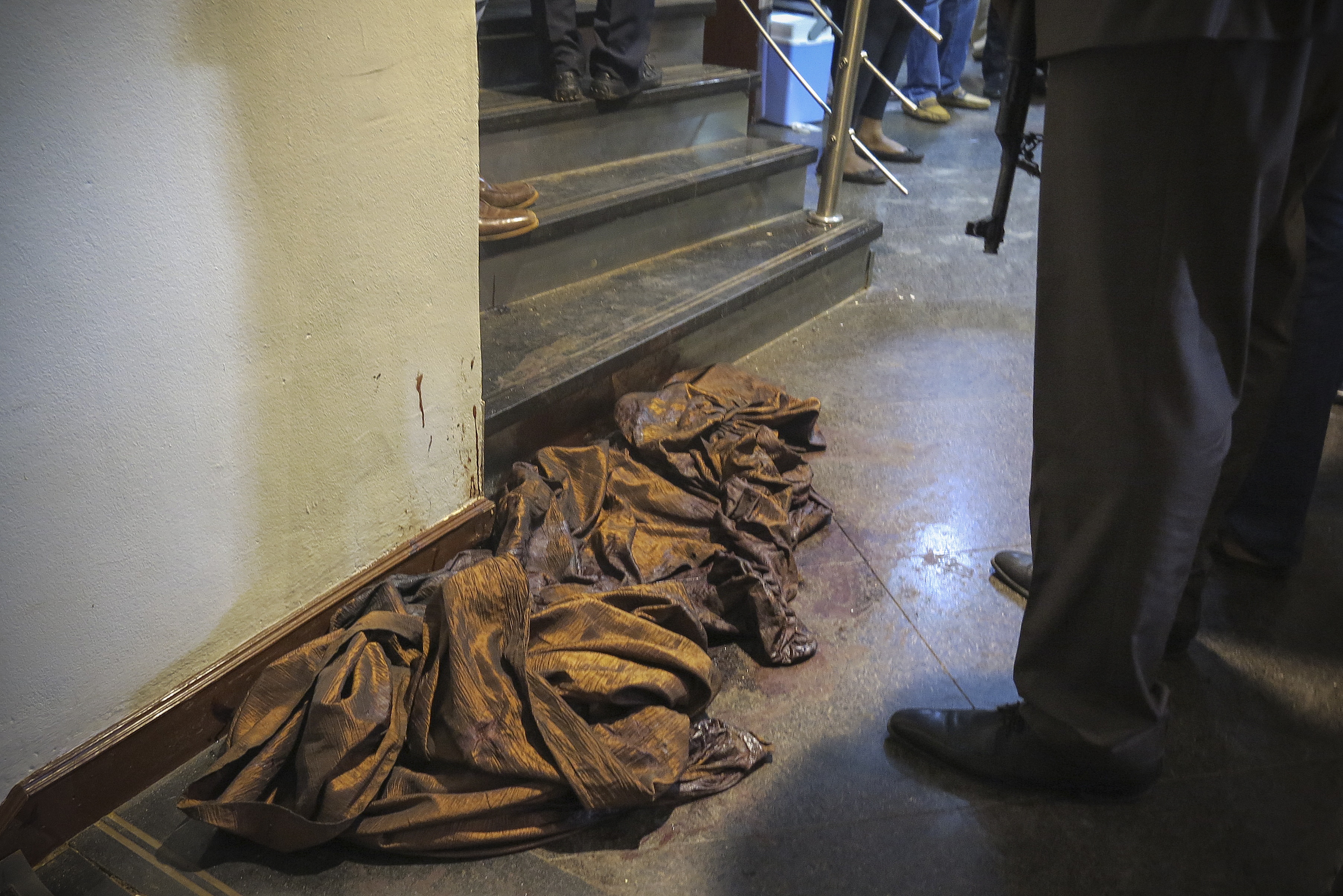
The secretary-general of Mali’s Catholic bishops’ conference said he fears the 20 November hotel attack in Bamako forms part of a wider Islamist campaign, but insisted Catholic-Muslim ties will not be affected by the latest violence.
Mons Edmond Dembele said the 20 November assault on Bamako’s Radisson hotel, which left at least 20 dead, occurred during the church’s annual national pilgrimage to the shrine of Our Lady of Mali at Kita, 250 kilometres from the capital. Muslims also went on the pilgrimage.
“Ordinary Christians and Muslims live well together here, attending each other’s ceremonies and sharing in community life. I think this crisis, far from weakening ties, will actually strengthen them,” Mons Dembele told Catholic News Service on 23 November.
“We know there’s a minority of Muslims who would like see things change. But they’re just a small group, and I’m confident good relations will continue between Christians and Muslims in our country,” he added.
Archbishop Jean Zerbo of Bamako told Vatican Radio on 21 November that the “infiltration of jihadi groups” had been helped by “poverty and lack of prospects among young people”, but added that he also believed the “deep communion” between Christians and Muslims would not be damaged.
“The international community should help educate young people and find a solution to unemployment problems here,” the archbishop said. He cited countries like Nigeria, Niger and Chad, “where the population is also largely composed of young people who easily fall prey to a fundamentalism which provides money and makes promises”.
Catholics make up around 1.3 per cent of Mali’s population of 15.5 million, 90 per cent of whom are Muslims.
Ethnic Tuareg rebels seeking to establish a separate state overran most of northern Mali during 2012, operating alongside Islamist insurgents believed linked to al-Qaida.
France, the former colonial power, intervened with air strikes in 2013 to prevent rebel groups marching on Bamako and handed over security to Malian government forces and a U.N. military mission the following July.
Under a June 2015 peace deal with the government of President Ibrahim Boubacar Keita, regional assemblies are to be elected, and northern rebel fighters integrated into national security forces.
However, Tuareg and Islamist attacks have continued since the agreement, delaying the return of 140,000 displaced Malians from neighbouring Niger, Mauretania and Burkina Faso.
The representative of U.S. Catholic Relief Services in Mali, Niek de Goeij, echoed some of the church leaders’ remarks. He also told CNS on 23 November his agency would “very carefully review” its security after the Radisson attack, but would be “even more determined” to press on with its development and humanitarian projects.
“Most of our staff are Muslims, and interfaith relations were always positive and mutually reinforcing here – I don’t think this event will have any impact on this,” the CRS representative said.
“But although Mali has a rapidly growing population, youth opportunities are extremely limited, and there’s a great waste of human capital which any terrorist or criminal group can exploit. The country needs to offer viable alternatives in jobs and livelihoods,” he said.
Mons Dembele said Christians who had fled advancing Islamists in northern Mali did not yet feel “safe enough to return”. However, he added that Muslims were affected by the same “security fears and uncertainties”, and said Malian Christians hoped the pope’s “message of peace, reconciliation and coexistence” would be heard throughout Africa when he begins his tour of Kenya, Uganda and the Central African Republic on 25 November.
